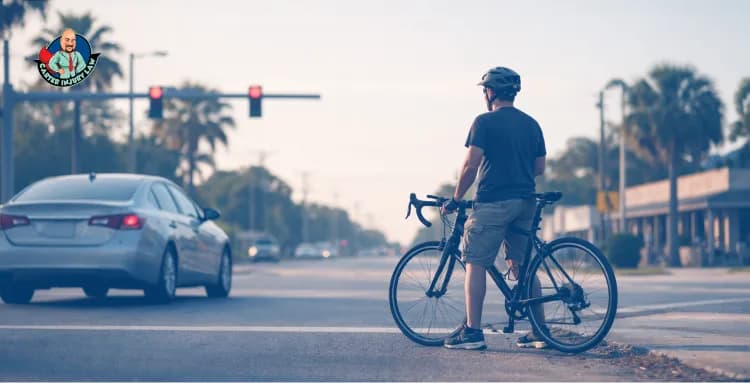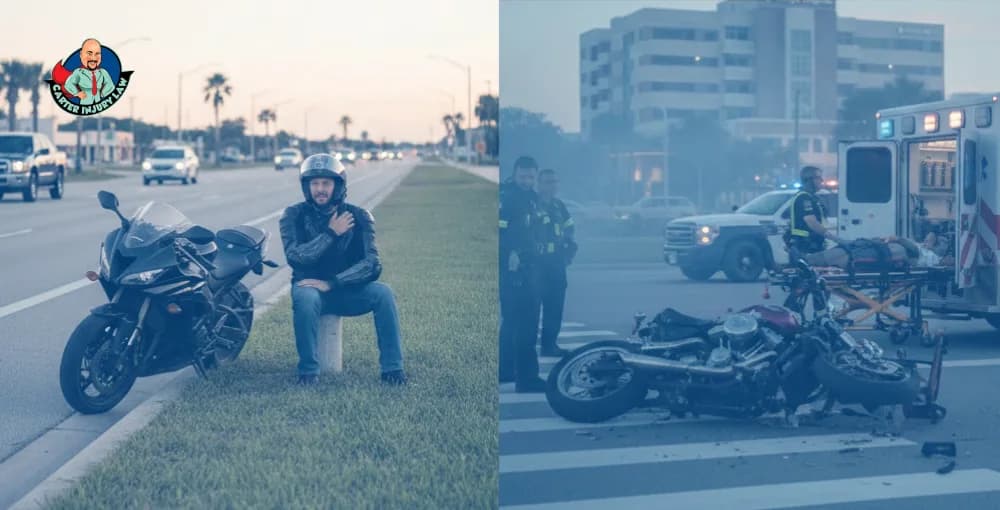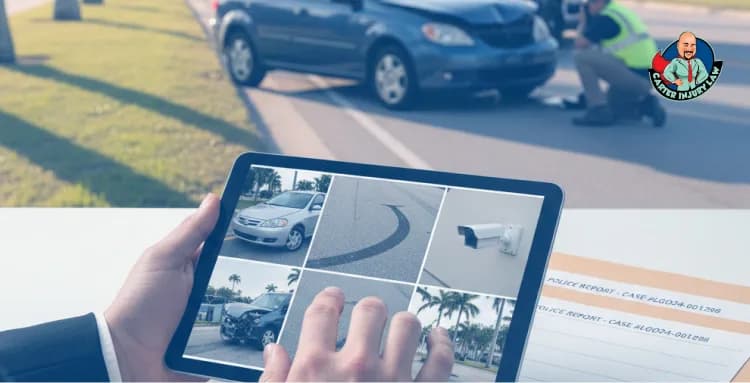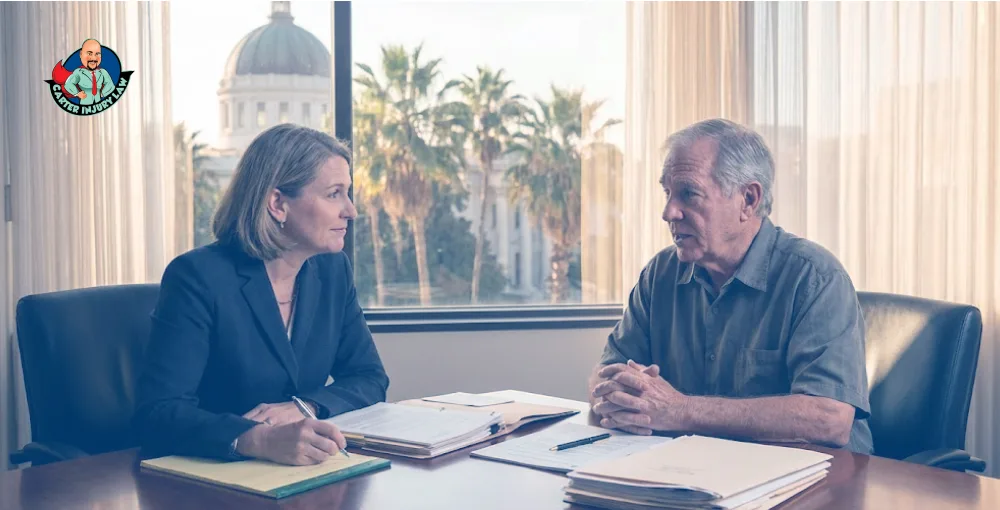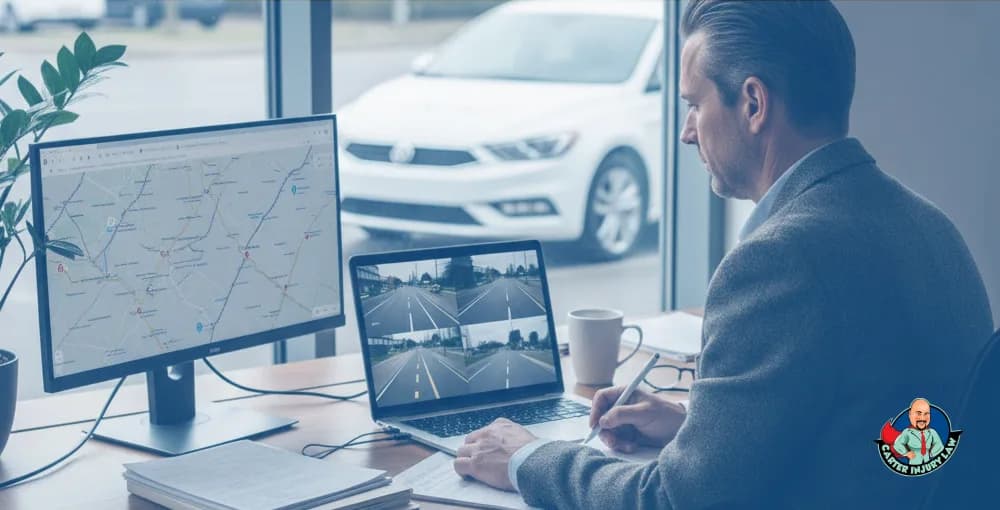You did everything by the book. Got hurt on the job, reported it, saw the doctor, and filed your workers’ comp claim. Then, out of nowhere, the denial letter shows up.
Now what?
Take a breath. You’re not alone. In Florida, denials like this are more common than most people realize. A denied claim isn’t a dead end. It’s just the start of a tougher road.
So, why did it get denied? And more importantly, what can you do about it? Let’s break it down but be ready, because the next part might surprise you.
(I) 4 Common Reasons for Denied Workers Compensation in Florida
Having a workers' compensation claim denied can feel like a punch in the stomach, especially if you are already dealing with an injury. However, understanding why claims are denied is the first step toward turning things around. In Florida, certain reasons reoccur. Understanding these common pitfalls can help you avoid making mistakes.
1. You Missed the 30-Day Reporting Deadline
Florida law requires you to report any workplace injuries to your employer within 30 days of the incident. If you have an occupational illness, the clock starts ticking the day your doctor tells you it is work-related.
If you miss this deadline, your claim may be denied, even if your injury is legitimate. Insurers frequently argue that delays indicate that the injury was not serious or occurred outside of the workplace.
2. Your Employer Disputes That the Injury Happened at Work
Employers or their insurers may argue that your injury occurred outside of the workplace. They might argue that:
You were off the clock
You were doing something outside your job duties
The injury happened elsewhere
Florida law requires that your injury happen "in the course and scope of employment." If your boss tells you otherwise, that's a red flag for denial.
3. There Is Insufficient Medical Documentation
Insurers examine medical records. If your paperwork is missing, inconsistent, or does not clearly link your injury to your job, they may reject your claim.
Additionally, Florida requires treatment from an authorized medical provider. Visiting your personal doctor without authorization? That might be a problem.
4. The Injury Involved Horseplay, Intoxication, or a Pre-Existing Condition
Florida law exempts the following situations from workers' compensation coverage:
Horseplay: Getting hurt while goofing off at work? That is your responsibility.
Intoxication: If you were under the influence when the incident occurred, your claim may be denied.
Pre-existing conditions: If your injury is the result of a previous condition and the work incident was not the major contributing cause (more than 50%), your claim may be denied.
(II) How to Fight a Denied Work Injury Claim: Step-by-Step
Receiving a denial on your workers' compensation claim can be discouraging; however, it does not mean the end of your search for fair compensation. Here's a step-by-step guide for successfully challenging a denied claim in Florida.
1. Maintain Thorough Documentation
Accurate record-keeping is essential. Save all relevant materials, including:
Detailed incident reports describing the nature and circumstances of the injury
Comprehensive medical records that document diagnosis, treatment, and work-related causation.
Written communications with your employer and insurance company
Statements of witnesses who can confirm the injury
According to Florida law, a Petition for Benefits must be filed within 2 years of the injury date or one year of the last authorized medical treatment or indemnity payment, whichever occurs later.
2. Request a Formal Explanation for Denial
Obtain a detailed, written statement from your employer or their workers' compensation insurer that explains the specific reasons for denial. Understanding their reasoning will enable you and your legal counsel to prepare an appropriate response.
3. Consult with an Experienced Florida Workers’ Compensation Attorney
It is strongly recommended that you hire a qualified attorney who is knowledgeable about Florida workers' compensation laws. Legal representation offers significant advantages, including:
Petitions and paperwork should be filed properly.
Evidence collection and presentation should be done strategically.
Representation at mediations and formal hearings
“Workers/claimants with legal representation are 47% more likely to have their claims approved.”
Source—Workers Compensation Research Institute, WCRI
They also tend to receive higher indemnity payments. This means that not only are your chances of approval increased, also the financial compensation you receive is frequently significantly higher when you have skilled legal representation on your side.
4. Follow the Formal Appeals Process
If initial informal resolution attempts fail, the following step is to initiate formal proceedings before the Florida Division of Administrative Hearings:
Pretrial Conference: A judge of compensation claims establishes procedural schedules and attempts to facilitate settlements.
Formal Hearing: Each party presents evidence and legal arguments. The judge makes a binding decision within 30 days.
Further Appeal: Unfavorable decisions can be appealed to the Florida District Court of Appeal within 30 days.
(III) Filing a Workers Compensation Appeal in Florida: What to Expect
If your workers' compensation claim has been denied in Florida, you have the right to appeal the decision. Understanding the process and timelines is crucial to ensure your appeal is handled effectively.
Timeframe for Filing an Appeal
Under Florida law, you must file a Petition for Benefits within:
Two years from the date of your injury, or
One year from the date of your last received benefit or authorized medical treatment, whichever is later.
Failure to meet these deadlines may result in the forfeiture of your right to appeal.
Steps in the Florida Workers' Compensation Appeal Process
Petition for Benefits
Initiate the appeal by filing a Petition for Benefits with the Florida Office of the Judges of Compensation Claims (OJCC). This petition should detail the benefits you're seeking and the reasons for the appeal.Mediation
After filing, a mediation conference is scheduled, typically within 130 days. This informal meeting involves you, your employer, the insurance carrier, and a neutral mediator aiming to resolve the dispute amicably.Pre-Trial Hearing
If mediation doesn't lead to a resolution, a pre-trial hearing is conducted. Here, both parties outline the issues, present evidence, and identify witnesses in preparation for the final hearing.Final Hearing
The final hearing before a Judge of Compensation Claims is held within 210 days of filing the petition. During this formal proceeding, both sides present their cases, and the judge renders a decision.
Anticipate Potential Delays
While the process has defined timelines, various factors can cause delays. It's essential to remain patient and maintain open communication with your legal representative throughout the process.
Mediation Outcomes
Mediation plays a pivotal role in the appeal process. According to the Florida Division of Administrative Hearings, over 25% of disputed workers' compensation claims in Florida are settled during mediation.
(IV) Get Legal Help from Carter Injury Law
Getting injured at work is difficult enough. Being denied the benefits you rightfully deserve? That's a completely new level of stress. We understand you didn't ask for a legal battle; all you want is to heal, pay your bills, and move on. Carter Injury Law provides clarity, direction, and an unwavering commitment to help you move forward with confidence.
Our team understands the system inside and out, and we know how to use it in your favor. We handle every legal step with care and precision, from filing your workers' compensation appeal to representing you in mediation or a final hearing. We're here to protect your rights and help you get the best possible outcome in your case.
You'll always know the status of your case. We keep you informed, explain the process clearly, and ensure that every question is answered directly. Carter Injury Law provides you with more than just legal representation; you also gain a partner who is completely committed to your recovery.
Call us today at 813-922-0228 or visit carterinjurylaw.com for a free case review. Your next step forward starts here, and we’re ready to walk it with you.



